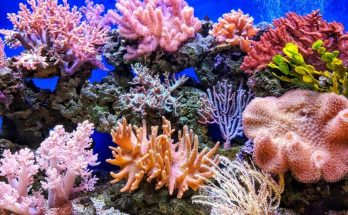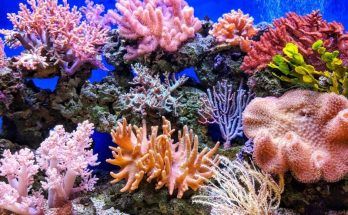Resilient planet. Image credit: Unsplash/NASA
After a busy year for the global environmental agenda, starting with the sixth session of the United Nations Environment Assembly (UNEA-6) and ending with the decision-making meetings of the Rio Conventions on climate change, biodiversity and desertification, attention in 2025 will shift to the seventh session of the United Nations Environment Assembly (UNEA-7).
UNEA-7 will take place from 8 to 12 December 2025 at the UN Environment Programme (UNEP) headquarters in Nairobi, Kenya, on the theme “Advancing sustainable solutions for a resilient planet”.
UNEA is the world’s highest decision-making body on the environment and includes all 193 UN Member States. It was created in 2012 and meets every two years at UNEP’s Headquarters in Nairobi, Kenya.
UNEA sets the global environmental agenda, provides overarching policy guidance, and defines policy responses to address emerging environmental challenges. It undertakes policy review, dialogue and the exchange of experiences, sets the strategic guidance on the future direction of the UNEP, and fosters partnerships for achieving environmental goals and resource mobilization.
The Chair of the Environment Authority of the Sultanate of Oman, His Excellency Abdullah bin Ali Al Amri was elected President of UNEA-7. UNEP recently spoke with Al Amri to discuss the ambitions of UNEA-7 and his role as its President.
For those who may not be familiar with the process, what is the role of the president of UNEA?
The President leads the UNEA-7 Bureau, guards the rules of procedure, and functions as the moral authority and voice of the Assembly. The President also convenes all formal plenary meetings and facilitates negotiations.
The theme for UNEA-7 is “Advancing sustainable solutions for a resilient planet”. What does a resilient planet mean to you?
A resilient planet is one where healthy ecosystems are prioritized; unsustainable resource extraction is reduced and efficiency enhanced, and where new technologies and practices can anticipate and prevent environmental risks. All this work must be underpinned by effective and inclusive environmental governance, and respect for the human right to a clean, healthy and sustainable environment.
Countries must work together towards sustainable solutions for a safer and more resilient planet to support the implementation of the 2030 Agenda for Sustainable Development and the Rio+20 outcome document The Future We Want. UNEA-7 will leverage science and effective governance to guide Member States and partners to work towards this end. The theme will inspire Member States to explore and advance solutions such as coherent policies to implement environmental mandates and commitments, improve access and use of scientific data and knowledge sharing, and strengthen collaboration.
Science is clear, and the effects of inaction to tackle the crisis of climate change, the crisis of nature, land and biodiversity loss, and the crisis of pollution and waste are already palpable in every corner of the world. We now need effective and ambitious systems in place for inclusive, systemic and action-oriented responses at all levels to slow the curve of the current paths, taking into consideration national context, capacities and priorities.
How can UNEA improve its ability to create consensus and political momentum on environmental challenges and solutions?
We aim to strengthen UNEA as the global leader in environmental affairs and will lead consultations to secure a Ministerial Declaration that enhances the Assembly’s political mandate at its seventh session.
I call on all Member States to listen to future generations, Indigenous communities, and island states to agree on effective mechanisms to access environmental support and financing faster and more easily for the most vulnerable to confront challenges.
Finally, we must engage the private sector to play a key role in achieving common goals by raising the level of global environmental performance and supporting the transition to sustainable consumption and production systems.
Science and environmental data will be the key drivers in finding solutions for a resilient planet.
What are Oman’s ambitions during the presidency of UNEA-7?
First, Oman will work diligently to build on the outcomes of the first Multilateral Environmental Agreements (MEA) Day held at UNEA-6 and enhance cooperation between UNEP, UNEA and the MEAs.
My Presidency will pay special attention to the regional Forums of the Ministers of the Environment and civil society consultations organized by UNEP, which will help Member States and stakeholders prepare their perspectives and asks from UNEA-7 in December 2025. The Presidency will also look at digital transformation and AI, and their role in advancing solutions to protect the planet.
The Presidency also encourages Member States to submit draft resolutions which can have an impact on the ground and make available funds for their implementation.
Furthermore, UNEA will also adopt UNEP’s new Medium-Term Strategy for 2026-2029 and the Programme of Work and Budget for 2026-2027, and will guide UNEP, Member States and partners in the monitoring and implementation of the UNEA mandates.
Oman is regarded as an environmental leader in the Middle East? Why do you think that is?
In 1974, two years after the Stockholm Environment Summit, the first government agency for environment preservation was established in the country, the first environmental law was issued, and the first natural reserve for mangrove trees was declared, and it remains the lung of the capital, Muscat, to this day. Since then, Oman has and continues to prioritize the environment in its development plans.
More recently, Oman announced its national plan for zero neutrality and 2050 as the date for achieving it. We have also issued a resolution to ban the use of single-use plastic bags, and we are working hard to promote the production of renewable energy, solar and wind.
About UNEA-7
The seventh session of the United Nations Environment Assembly (UNEA-7) will take place on 8–12 December 2025 in Nairobi, Kenya, under the overarching theme “Advancing sustainable solutions for a resilient planet.” UNEA-7 will approve the Medium-Term Strategy for 2026-2029 and the Programme of Work and Budget for 2026-2027 of the United Nations Environment Programme. Visit the UNEA-7 website to learn more about the official theme and the activities of the President and Bureau.





